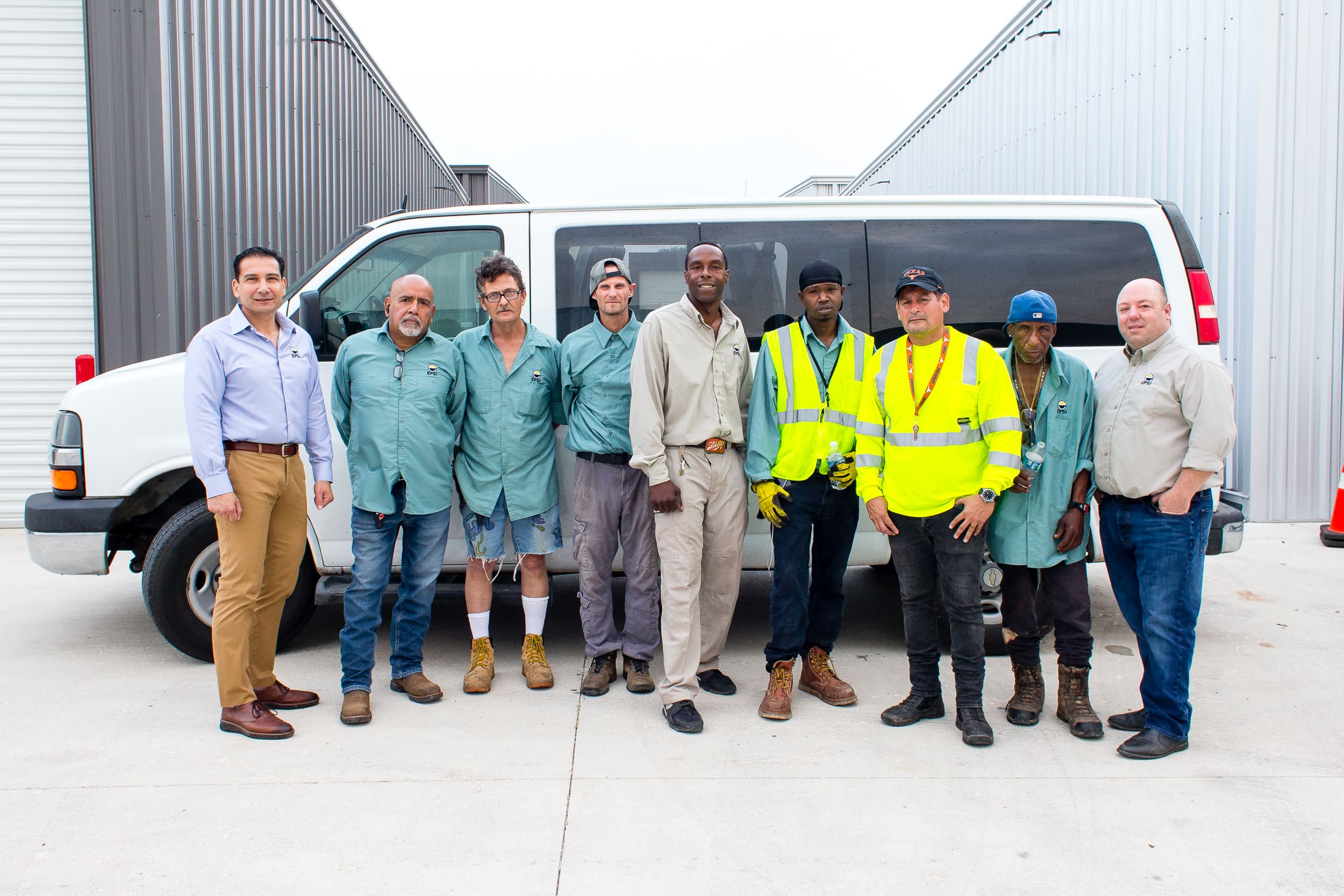
Photo: EPSI
Enterprise Professional Services, Inc. (EPSI), based in Lakeway, Texas, started in 2011 with a mission to provide employment for people with disabilities. They saw an opportunity to help another group of people in 2018 as Austin’s homeless situation was snowballing.
EPSI is an AbilityOne nonprofit agency that specializes in custodial, grounds and hospital environmental services for state, federal and commercial facilities. Their grounds maintenance and environmental cleanup services are their fastest-growing business lines.
Stephan Saia, president and CEO of EPSI, says city officials were working hard to address the homeless issue and they wanted to help.
“EPSI was asked to participate in a pilot project to help clean designated city areas, many of which included abandoned homeless encampments,” Saia says. “The project was small and we had no staff to operate it, but our grounds maintenance team volunteered to take it on in addition to their lawn care responsibilities. As the need for cleanup services expanded, we realized that the job’s low barrier to entry would enable us to offer employment and a livable wage to Austin’s unhoused. That’s when we formed our environmental cleanup services (ECS) business line and dedicated all open positions entirely to the unhoused or those recently recovering from homelessness. And since many of these employees have medical needs, they help EPSI meet its mission while we help them get back on their feet.”
While the original pilot project was terminated due to the pandemic, EPSI’s crews did such a great job they received new requests from a number of city agencies. Now they have multiple crews staffed entirely with those who are currently homeless or have recently transitioned to affordable housing.
EPSI has a passenger van pick up their unhoused employees and take them to work each day. They provide these employees with breakfast and lunch. They are also working with other nonprofit agencies to coordinate housing vouchers.

Photo: EPSI
“Since many of them only have recent work experience as day laborers, we authorize them advanced pay to help them adjust to a twice-per-month paycheck,” Saia says. “Since many have medical needs, we maintain a list of local agencies we can steer them to for medical health issues, mental health support, and rehabilitation services. It’s not perfect and we’re trying to figure out more we can do, but it’s a start.”
Saia says he often feels they are not doing enough, but their ECS employees appreciate the help.
“We don’t see it as giving them handouts,” he says. “They earn every benefit we provide them. Despite the risk of having an employee fall back into the streets and disappear, we have several employees approaching one year of continuous service with us. These employees show up on time. They appreciate the job opportunity. They work as a team. They do quality work. They create a unique bond with their coworkers under the leadership of our supervisors. In today’s labor market, it doesn’t matter if you’re housed or unhoused…those are rare and respectable qualities in any new employee these days.”
Saia says they’ve had some of their ECS employees ask about a career path in grounds maintenance with one working on learning irrigation. Another has expressed interest in their custodial side of the business.
“When they feel ready for the next step, we’ll provide them the training, certifications and encouragement they need to build a career for themselves,” Saia says.
So far, they’ve had three ECS employees move into stable housing this season. He says one employee has been consistently homeless since he was 16, but now he is 34, living with his girlfriend and they just had a baby.
“It’s inspirational to see an employee survive a living hell and come out the other side with a stable work life and an eye on the future,” Saia says. “Each of our ECS employees is a constant reminder that all of us, whether we want to admit it or not, are only a few bad decisions or an unfortunate life event away from being unhoused. Our ECS employees are a constant reminder to count your blessings. They also represent hope. When the chips are down, and I mean way, way down, they remind us that it’s possible to piece your life back together.”
Saia says if you have a low barrier to entry work you think may be well-suited for the unhoused, connect with other social service agencies that offer work programs or job coaching.
“Get to know the social enterprises in your neighborhood,” Saia says. “Graduates of these programs are often ready for work. Help employees make the transition to a stable work life. You don’t have to be a nonprofit agency to provide them a supportive work environment, a career path, and a little bit of hope. And remember that at the end of the day, when we are called home, no one is going to look at your P&L to see how much money you made; you’ll be remembered for how many lives you changed.”

